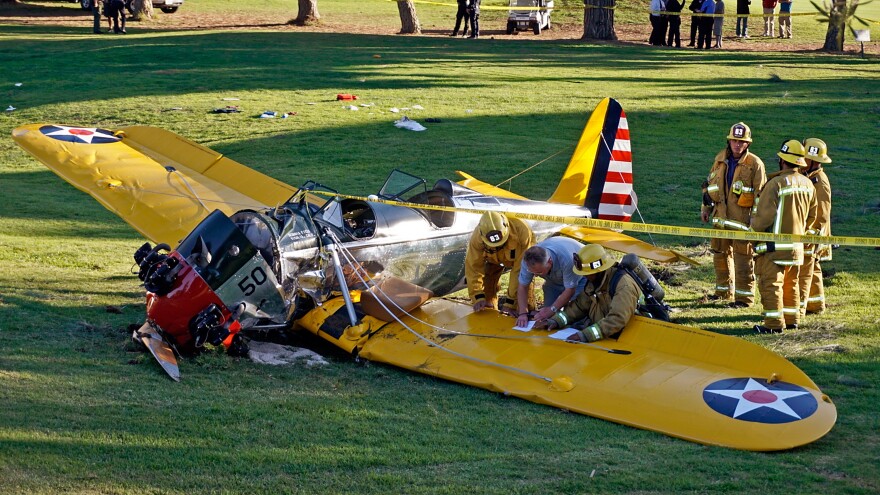The crash in March of a vintage single-engine airplane piloted by actor Harrison Ford is being blamed on a malfunction in the engine, according to a report released by the National Transportation Safety Board.
After reporting a loss of power on March 5, Ford crashed-landed his Ryan Aeronautical ST3KR — a restored World War II-era trainer — on a golf course near the Santa Monica Airport where the plane had taken off just minutes before. The 73-year-old actor of Star Wars and Raiders of the Lost Ark fame was injured in the crash but has since recovered.
In an interview with NTSB investigators, Ford told them that when the engine stalled, he did not attempt to restart it, but instead banked the plane back toward the airport. "[However], during the approach, he realized that the airplane was unable to reach the runway. The pilot did not recall anything further about the accident sequence."
In the report, the NTSB concluded that the main metering jet for the plane's carburetor had come loose, increasing the fuel flow and choking off power.
"The unseated jet would have allowed an increased fuel flow through the main metering orifice, producing an extremely rich fuel-to-air ratio, which would have resulted in the loss of engine power," the report said. "It is likely that, over time, the jet gradually loosened from its seat, which allowed it to eventually rotate 90 degrees. No further mechanical failures or malfunctions were revealed that would have precluded normal operation."
Copyright 2021 NPR. To see more, visit https://www.npr.org.





